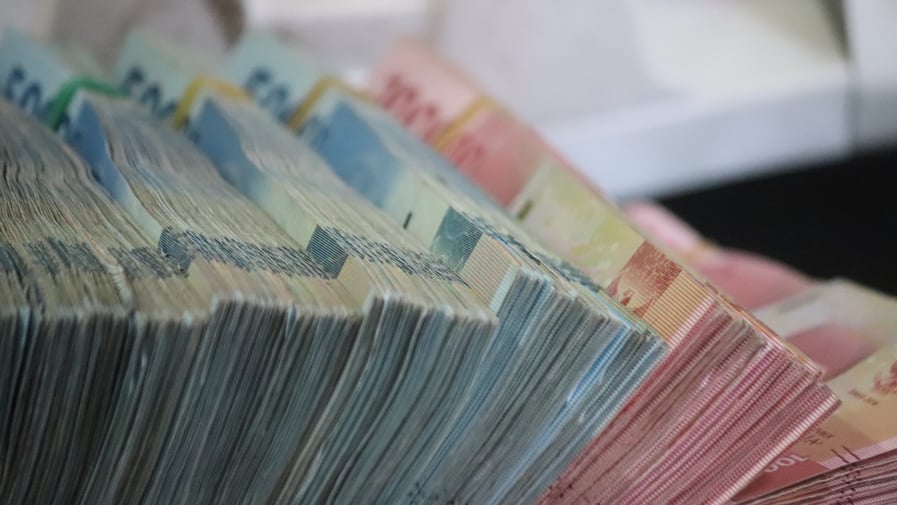This month’s Red Flag Bulletin includes the following stories:
- French presidential candidate accused of misusing public funds during term in European Parliament;
- Indonesian authorities open corruption case relating to award of palm oil export licences; and
- Cryptocurrency exchange Kraken receives licence from Abu Dhabi financial centre.
AMERICAS
US: SEC uncovers USD 194 million penny stock scheme spanning three continents
On 18 April, the US Securities and Exchange Commission announced charges against 16 defendants – including companies and individuals in the Bahamas, British Virgin Islands, Bulgaria, Canada, Cayman Islands, Monaco, Spain, Turkey, and the United Kingdom – for participating in fraudulent penny stock schemes that generated more than USD 194 million in illicit proceeds. The scheme allegedly involved the defendants owning shares in stocks via offshore entities, and then funding promotional campaigns to promote these stocks to investors in the US. Some of the defendants subsequently sold the stocks via trading platforms in Asia, Europe, and the Caribbean for significant profits.
Honduras: Former president Juan Orlando Hernández extradited to the US on federal drug trafficking charges
On 21 April, former president of Honduras Juan Orlando Hernández (2014-2022) was extradited to the US on federal drug trafficking and firearms possession charges. Hernández is accused of participating in a drug-trafficking conspiracy that facilitated the importation of cocaine into the US for decades, and of receiving millions of dollars from drug traffickers in Honduras and Mexico, including from Mexican cartel leader Joaquín ‘El Chapo’ Guzmán, for allegedly protecting them. Hernández allegedly used the funds to finance his political campaigns and commit voter fraud. He denies all the allegations. His brother and former Honduras congressman Juan Antonio Hernández was sentenced to life in prison for conspiring to import cocaine into the US in 2021.
RUSSIA AND CIS
Russia: US, EU, and UK sanctions regimes against Russia expanded
Throughout April, the US, EU, and UK further expanded their sanctions regimes against Russia in relation to the latter’s ongoing military invasion of Ukraine. New blocking sanctions were introduced against hundreds of Russian business figures and officials, including the adult children of Russian president Putin, as well as some of the largest Russian banks such as Sberbank and Alfa-Bank. The US and UK also extended their import and export bans on Russia and restricted any new investment in the country. The EU approved an embargo on Russian coal, closed its ports to Russian vessels, froze the assets of several Russian banks, and extended its ban on exports to Russia. At the time of writing, a sixth EU sanctions package, which will likely target Russian oil imports, is reportedly in the making. The situation is subject to change as it develops rapidly. To discuss these developments and how they impact your organisation, please reach out to us.
Kyrgyzstan: Protracted investor-state dispute over lucrative Kumtor gold mine at an end
On 4 April, the Kyrgyz government and Canadian mining company Centerra Gold reached an agreement ending a protracted dispute over the Kumtor gold mine, which accounts for around one-tenth of Kyrgyzstan’s GDP. The agreement completes the mine’s nationalisation, which began after President Sadyr Japarov seized power in Kyrgyzstan in October 2020. State-owned gold mining company Kyrgyzaltyn will assume control over the Kumtor gold mine. In exchange for full control over the mine, the Kyrgyz government will cede its 26-percent stake in Centerra Gold. Centerra Gold’s shareholders are yet to approve the deal. While the nationalisation of the mine may be beneficial to Kyrgyzstan’s economy, the hostile takeover of the multibillion dollar asset is likely to dissuade foreign companies from investing in the country.
SUB-SAHARAN AFRICA
Niger: Minister of communications arrested for embezzlement
On 19 April, the Nigerien Minister of Communications, Mahamadou Zada, was arrested as state investigators continue to probe the loss of approximately USD 4.9 million from the state mining company SOPAMIN during Zada’s tenure as its chairperson (2013-2021). His arrest marks the first time a sitting Nigerien minister has been detained. The missing funds were reportedly due to be invested with a local microfinance cooperative, Taanadi, which allegedly never received them. Several Taanadi employees have been arrested alongside Zada as part of the ongoing investigation. SOPAMIN is no stranger to controversy, having faced widespread public backlash for alleged corruption and bribery in a USD 320 million uranium mining deal with French nuclear company Areva SA in 2011. In 2017, a Nigerien parliamentary investigation cleared SOPAMIN of any wrongdoing, however the probe faced fierce criticism from the political opposition who believe it lacked integrity.
EUROPE
Switzerland: Former CEO of Raiffeisen Switzerland found guilty of fraud
On 13 April, Pierin Vincenz, the former CEO of Raiffeisen Switzerland, was sentenced to three years and nine months in prison for fraud, forgery of documents, and criminal mismanagement. Vincenz was also given a suspended fine of CHF 840,000 (GBP 692,014) and ordered to pay nearly CHF 1.3 million (GBP 1.07 million) in compensation for damages incurred over various corporate transactions. Vincenz reportedly made millions through illicit deals while he was CEO of the bank, and reportedly expensed hundreds of thousands of francs spent on visits to strip clubs, Tinder dates, and holidays. Vincenz has reportedly appealed the decision, which as yet is not final.
France: Marine Le Pen accused of misusing public funds while an MEP
On 16 April, French news outlets reported that the European Anti-Fraud Office (OLAF) had accused Marine Le Pen, a French politician and at the time a presidential candidate, and three other members of her party of embezzling EUR 600,000 in public funds while they served as members of the European Parliament. The Paris prosecutor’s office, which received OLAF’s report in March 2022, is reported to still be analysing the findings and, as yet, has not opened an investigation into the allegations. Representatives of Le Pen’s party, Rassemblement National, criticised Médiapart, the French investigative news outlet that first published the story, for the timing of its publication of the investigation, which took place a week before the second round of voting in the French presidential elections.
Slovakia: Former prime minister and minister of the interior charged with establishing a criminal group
On 20 April, the Slovak National Crime Agency (NAKA) charged Robert Fico, a former prime minister and current opposition MP, and Robert Kaliňák, a former minister of the interior, with establishing a criminal group and abuse of power. Fico, who is currently protected from arrest by his parliamentary privilege, has rejected the accusations, which he described as politically motivated. He has also sent a letter to the European Council in which he voiced his concerns about the investigation. Kaliňák has been under arrest and in pre-trial custody since being charged, although he has filed a complaint against his detention with the Slovak Supreme Court. The police investigation is reportedly connected to another ongoing criminal investigation into former leading police and security agency officials, which began after Fico’s defeat in the 2020 elections.
ASIA PACIFIC
Indonesia: Government opens corruption case relating to award of palm oil export permits
On 19 April, the Indonesian authorities opened a corruption case relating to the issuance of palm oil export permits. A trade ministry official and three palm oil company executives are reportedly among four suspects the authorities have named. Due to a sharp increase in global cooking oil prices, between mid-January and late March, Indonesia restricted exports of palm oil and its derivatives by requiring companies to meet local demand before exporting. The corruption case reportedly focusses on companies that received export licences without first meeting their domestic supply requirements.
PRC: Formal official arrested amid increased crackdown on financial sector corruption
On 22 April, Zeng Changhong, a former official at a regulator in charge of approving IPOs in China, was arrested for suspected bribery. Zeng’s arrest comes against the backdrop of a reported acceleration in the Chinese government’s crackdown on corruption in the financial sector in recent weeks. According to China’s top anti-corruption body, in April, at least 17 officials working for financial regulators and state-owned banks – including former China Merchants Bank president Tian Huiyu – were investigated or penalised. China’s anti-corruption body had launched its investigation into financial institutions and regulators, which has resulted in the arrest of over 40 financial officials, in October 2021. Investors reportedly fear this crackdown could further slow China’s economic growth, as the government continues to impose Covid restrictions and crack down on the property sector.
MIDDLE EAST AND NORTH AFRICA
UAE: Cryptocurrency exchange receives licence
On 25 April, US-headquartered cryptocurrency exchange Kraken received a licence from the Abu Dhabi Global Market (ADGM), a financial centre in Abu Dhabi, to operate a regulated trading platform in the United Arab Emirates. The platform, which is reportedly the first licenced cryptocurrency exchange in the country, will allow investors to invest, trade, withdraw, and deposit crypto assets directly in AED. In 2018, ADGM became the first financial centre to implement a virtual asset regulatory framework, paving the way for increased use of cryptocurrency in the UAE. Dubai followed suit in March 2022. Kraken’s licencing follows reports from earlier this year that Russian investors were using cryptocurrencies to buy property in the UAE after Russian business figures became targets of international sanctions in the wake of Russia’s invasion of Ukraine in February 2022.





